Another Vector Company Building Honored for Sustainable Construction and Outstanding Architecture With Platinum and Diamond
The German Sustainable Building Council (DGNB) has awarded its two most valuable awards to Vector Informatik's latest new building in Stuttgart. This means Vector currently has two buildings that can combine both awards, making it unique in the world.
In April 2022, an expert commission for design quality from the German Sustainable Building Council (DGNB) assessed the recently completed extension to the first Vector building on Ingersheimer Strasse in Stuttgart Weilimdorf. The commission subsequently voted unanimously in favor of a DGNB Diamond award and thus for outstanding design and building quality.
This means that the new part of the building at Ingersheimer Strasse 24, which was completed in 2019, has been certified with Platinum and now also with Diamond. Specifically, the commission's experts emphasized that the new part of the building was connected to the existing building, whereby the floor heights were retained with a high level of planning effort and the existing proportions were continued both inside and out. In doing so, it was possible to fully meet the current technical requirements of the building. The additional planning effort required for harmonious integration into the surroundings and the existing buildings was also honored. Last but not least, the Design Quality Commission praised in particular the use of local materials and the commissioning of predominantly regional craftsmen.
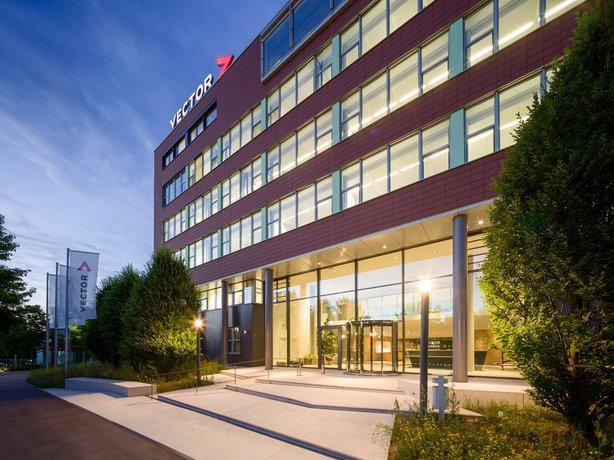

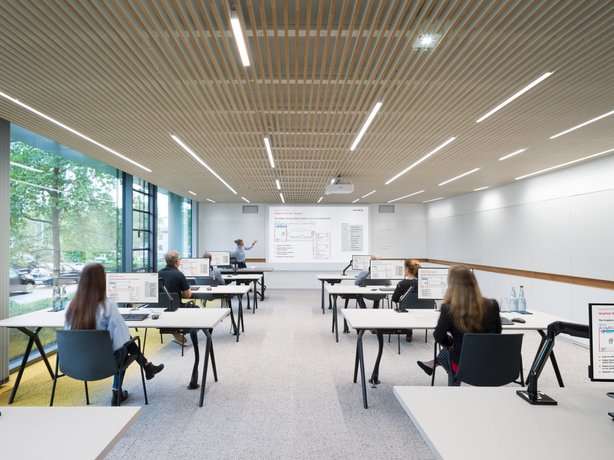

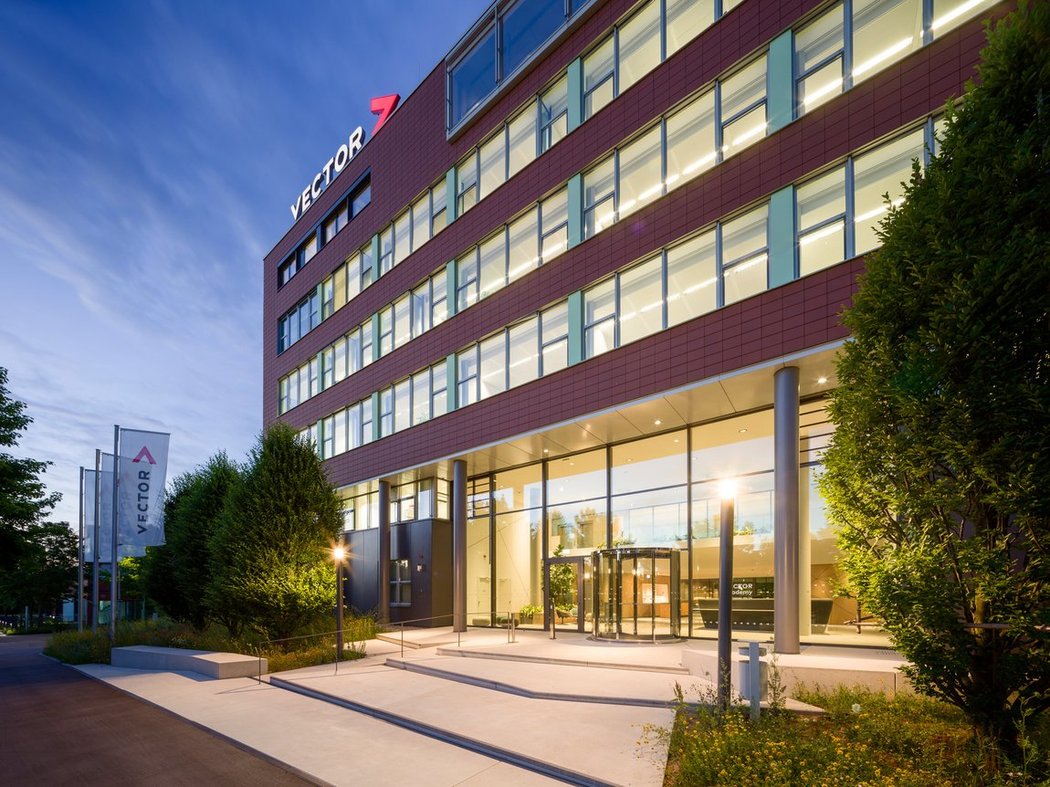
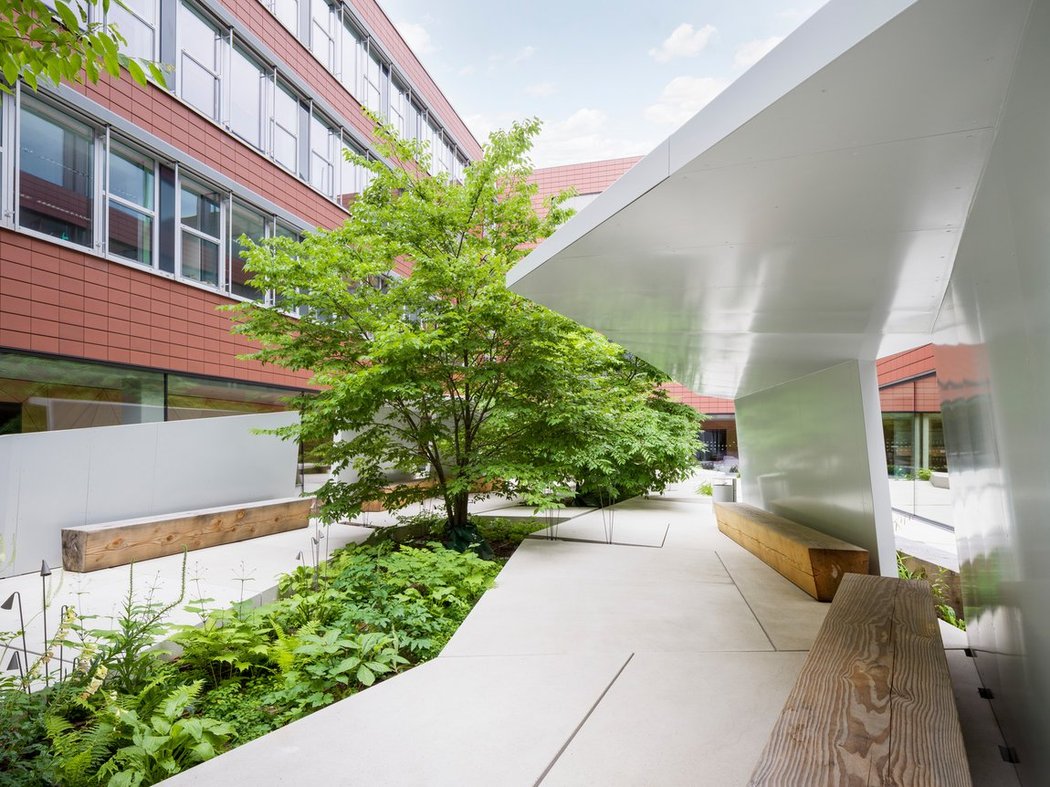

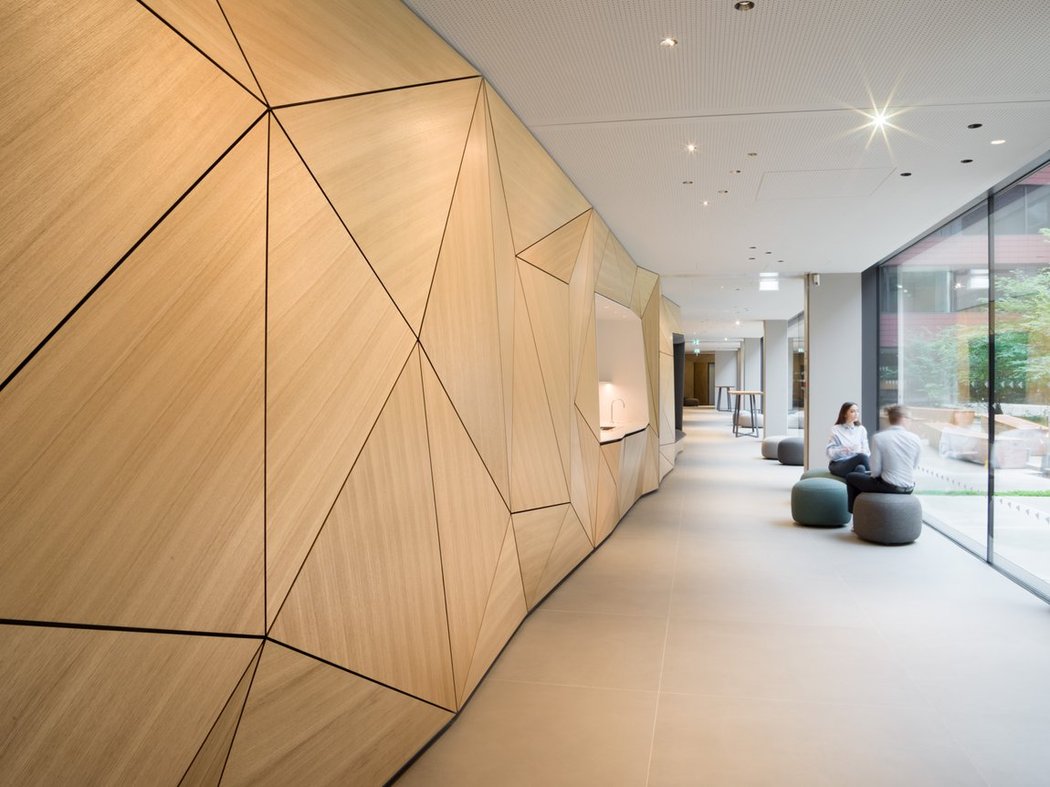
Vector has placed great emphasis on sustainability in its construction activities for years. This has now been honored several times by the German Sustainable Building Council (DGNB). In 2016, the DGNB awarded the Vector headquarters in Holderäckerstrasse Stuttgart two of its coveted certificates. It was thus the first office building to be simultaneously awarded Platinum for sustainable construction and Diamond for outstanding architecture with special design and architectural quality by the DGBN. With the current award for the new part of the building, Vector is thus the first company in the world to have already been awarded Platinum and Diamond twice by the DGNB for outstanding construction and design quality. The award for an extension to an existing building is also unique.
The option of extending the original L-shaped building at Ingersheimer Strasse 24, if required, was envisaged from the outset. Challenges in the planning were posed - in addition to changes in building regulations - by the further development of requirements over the years with regard to the room program and the technical building equipment. Today, the first floor offers a revolving training area for up to 180 participants.
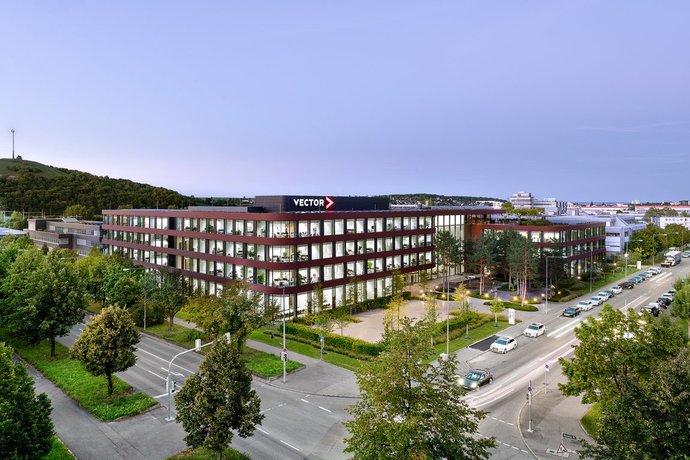

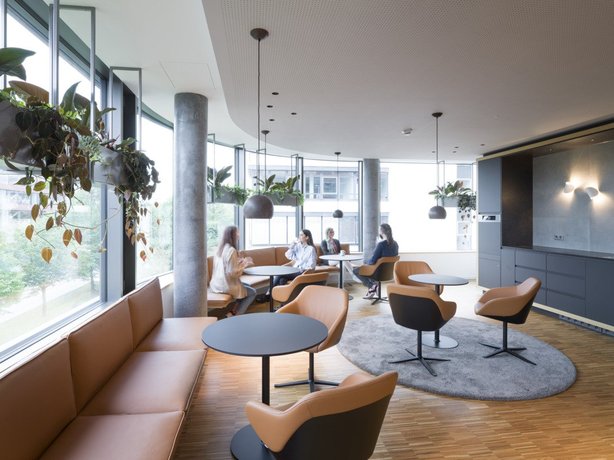
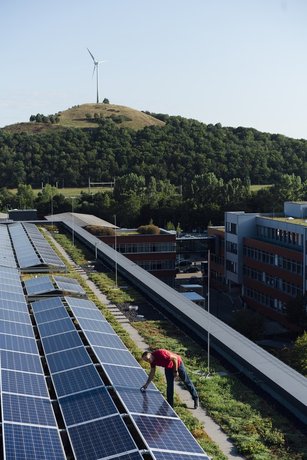


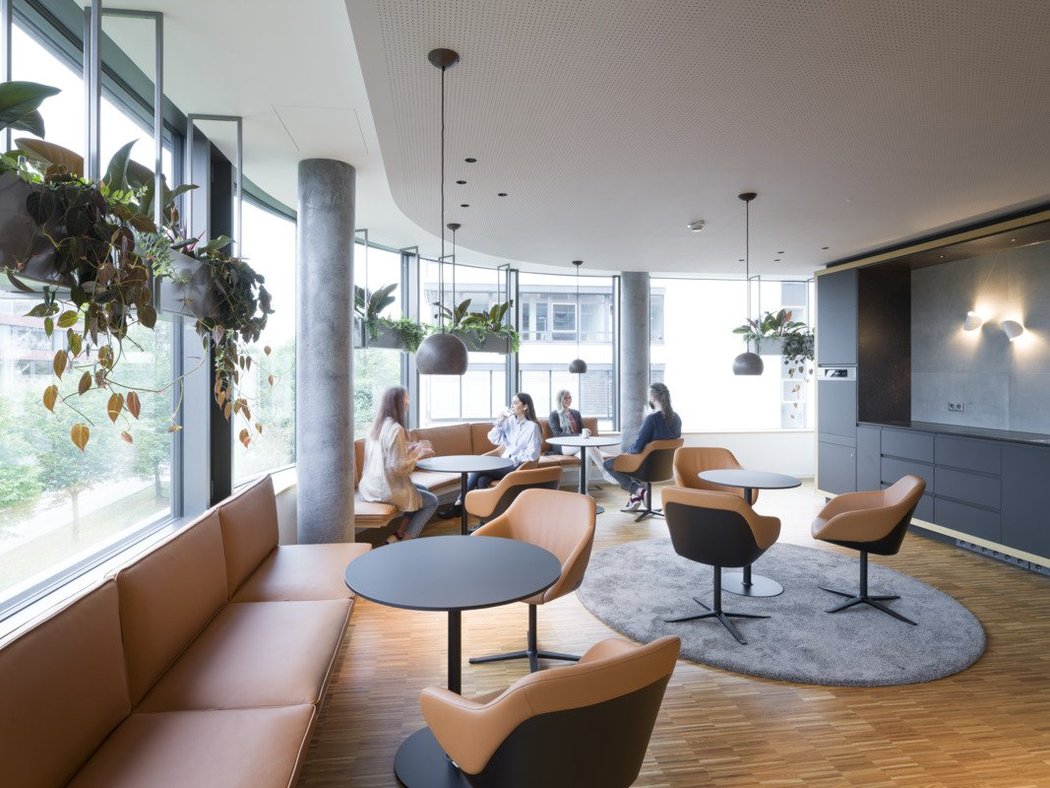
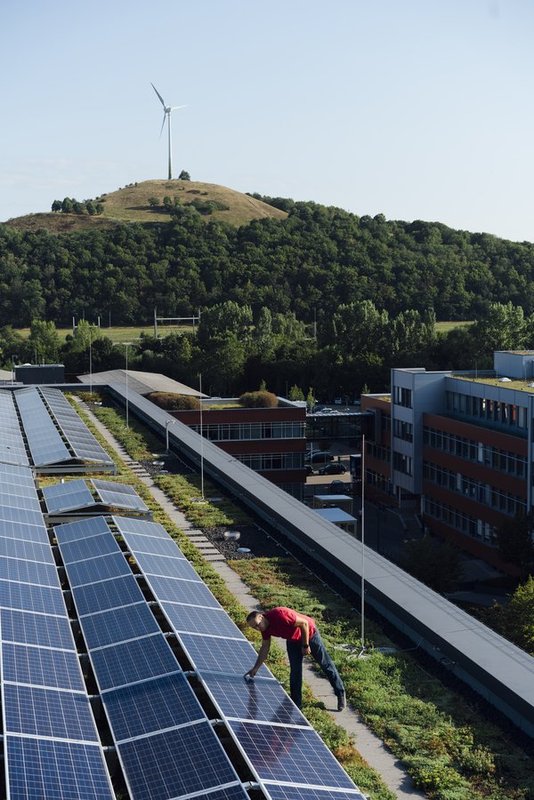
Despite the connection to the existing building, the desire for the greatest possible sustainability was taken into account in the planning process from the very beginning. In accordance with the DGNB definition, the building technology allows for climate-neutral operation. Measures to improve biodiversity were also implemented in several areas. Great care was taken in the selection of building materials so that not only very good indoor air quality but also timelessness in design was achieved. Great emphasis was placed on the areas related to comfort and socio-cultural criteria.
For decades, Vector has been investing in the ecologically sound modernization of existing structures as well as in the construction of new, future-oriented buildings. Building materials are selected on the basis of sustainability criteria as early as the planning stage, and attention is paid to connections to local transport systems and e-mobility. Vector focuses on consistent resource conservation and the maximum use of renewable energies. Vector buildings are optimized to reduce heat and electricity consumption. For example, biogas consumption is reduced - where possible - through the use of geothermal and solar thermal energy. In addition, the photovoltaic system, smart building controls, LED lighting with occupancy sensors for automatic light switching, and shutdown of circuits at closing times reduce electricity consumption. Facing up to ecological challenges contributes to employee satisfaction on the one hand and also has a positive effect on the environmental balance sheet.